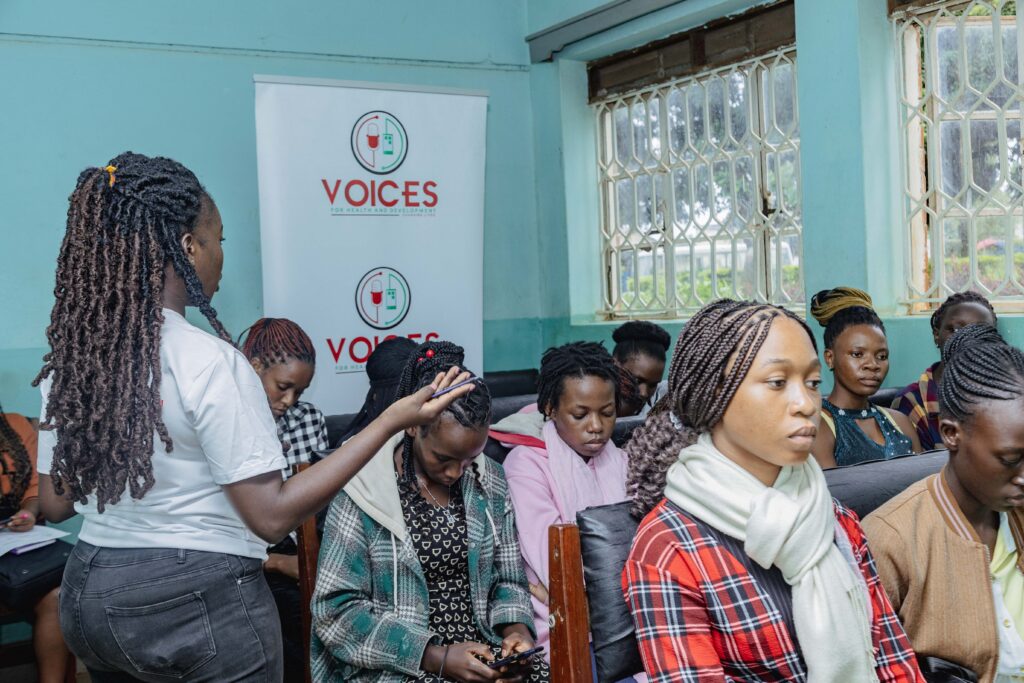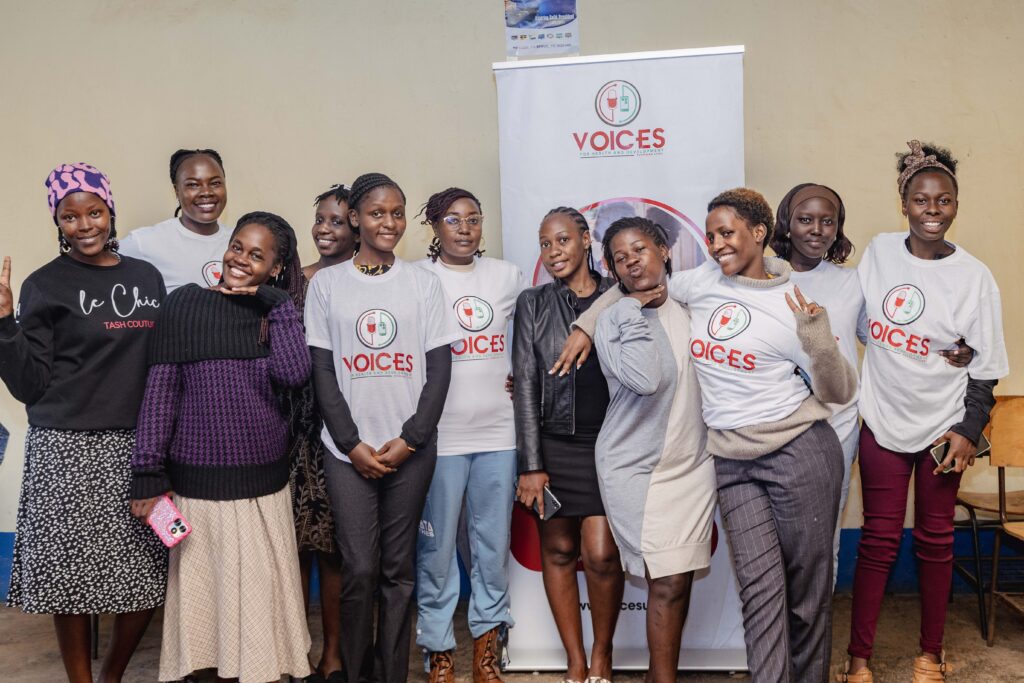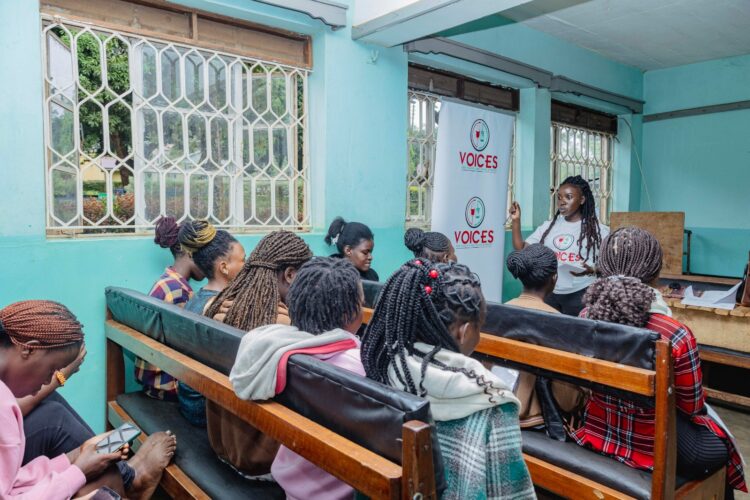Voices for Health and Development (Voices), a feminist, women-led not-for-profit organization, engaged nearly 40 female students at Nkumba University in focus group discussions on Sexual and Reproductive Health (SRH).
The session, held on May 7, 2025, aimed to inform the organization’s programming and advocacy strategies by capturing the lived experiences of girls in university spaces. According to Rose Mahoro, Programs Manager at Voices, the focus group discussions were critical in understanding the unique SRH challenges faced by female students. “These insights will help guide more targeted and effective interventions to mitigate reproductive health issues within higher education institutions.”
During the focus group discussions, students had an open and free space to share their experiences. Olive Nigesa, a first-year Journalism and Public Relations student, described the exercise as an “eye-opener.” “A friend of mine had an abortion, but she did not get the right guidance from the clinic she went to, which almost cost her life,” Nigesa shared. “My participation in this focus group discussion was an eye-opener, and I think if well-tailored, it can help mitigate sexual reproductive health challenges that are accustomed to spaces like ours.”
Participants also shared personal reflections and key takeaways from the engagement. Princess Amliah emphasized the importance of knowing her rights. “I’ve learned that knowing my rights is the first step in protecting myself and helping others because it’s really hard to get help from the university administration sometimes,” she said.

Group A Participants during the awareness session// Japheth Godwin Walakira
Nakalembe Majorine highlighted the need to speak out and support fellow girls who might be victims of violence. “Today, I understood the importance of speaking out and supporting fellow girls who might be victims of violence,” Majorine said. “Silence only empowers the perpetrators, and with this, I have been empowered to help my colleagues with their sexual and reproductive health challenges.”
Speaking to Nkumba University News shortly after the session, Rose Mahoro said the organization identified Nkumba University as a fertile ground for engaging with young women on pressing sexual and reproductive health issues in university settings.
“We don’t want to design our programs from behind a desk—we believe in reaching out to the communities we serve,” Mahoro explained. “This focus group discussion was an incredibly enriching experience. Hearing directly from the students gave us deep insight into their realities. They had a safe, open space to express themselves freely, and that feedback is invaluable in helping us develop programs that truly reflect their needs.”
The exercise brought to light the need for continuous sexual and reproductive health education and awareness campaigns within universities. One of the participants, Achola Tina, noted that from the focus group discussions, many students didn’t know where to seek help. “I now realize the power of solidarity among women and the importance of having spaces for girl-talk, thanks to Voices for Health and Development,” said Achol.
Voices for Health and Development assured the students of their commitment to promoting accessible and youth-friendly health education, with a particular focus on Sexual and Reproductive Health (SRH) and Gender-Based Violence. The organization will now use the information collected to curate responses to areas that require quick intervention.

Group B Participants pose for a photo with Juliet Apio shortly after the awareness session// Japheth Godwin Walakira
Unintended pregnancies and unsafe abortions are increasingly pressing concerns among university students in Uganda. A multi-university study found that 6% of sexually active female students aged 15–19 had experienced pregnancy, while 7% had undergone an induced abortion, often in unsafe conditions (Nalwadda et al., 2011). Nationally, unsafe abortions contribute to approximately 26% of maternal deaths, highlighting the severe health risks young women face when access to safe, legal services is restricted (Guttmacher Institute, 2020).
In parallel, gender-based violence (GBV) continues to affect students in higher education. At Soroti University, 57.8% of students reported experiencing some form of GBV, with emotional or verbal abuse accounting for 56.5% of those cases (Ononge et al., 2022). Broader national data show that over 50% of adolescent girls and young women aged 15–19 have experienced physical or sexual violence, underscoring the pervasive nature of the problem (Guttmacher Institute, 2020).
Although Uganda has adopted policies addressing key sexual and reproductive health (SRH) issues—such as family planning, STI prevention, cervical cancer screening, and GBV—access to these services and information remains inadequate, especially for youth in university settings (WHO, 2018).
To effectively address these interconnected challenges, universities must play a proactive role in providing youth-friendly, confidential, and accessible SRH services. Doing so is not just a health imperative, but a foundational step toward ensuring student well-being, safety, and academic success.




















Discussion about this post